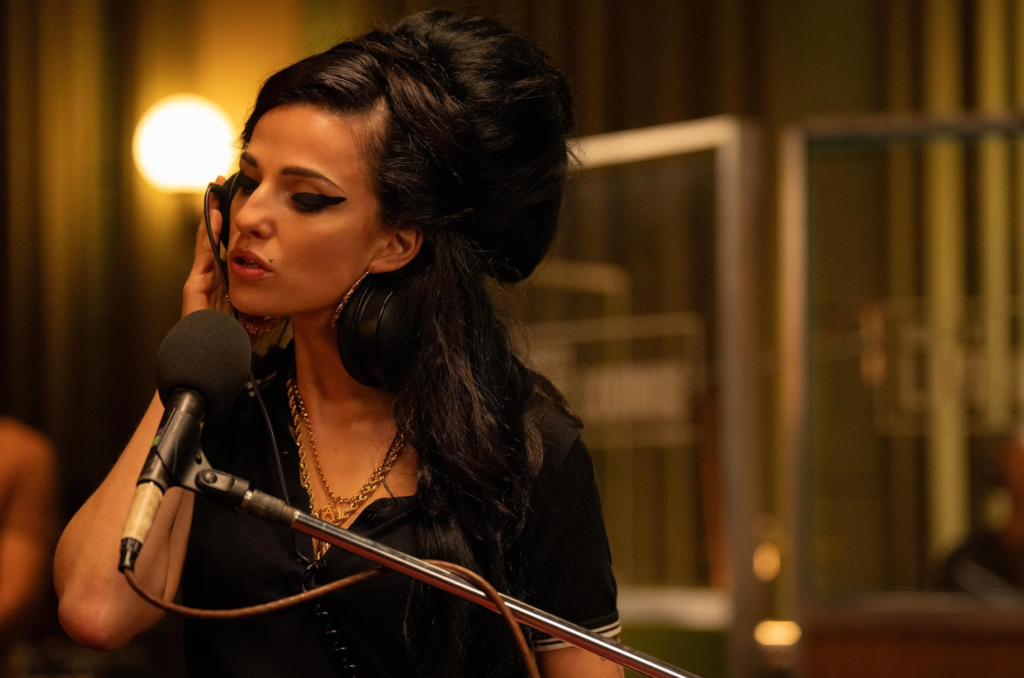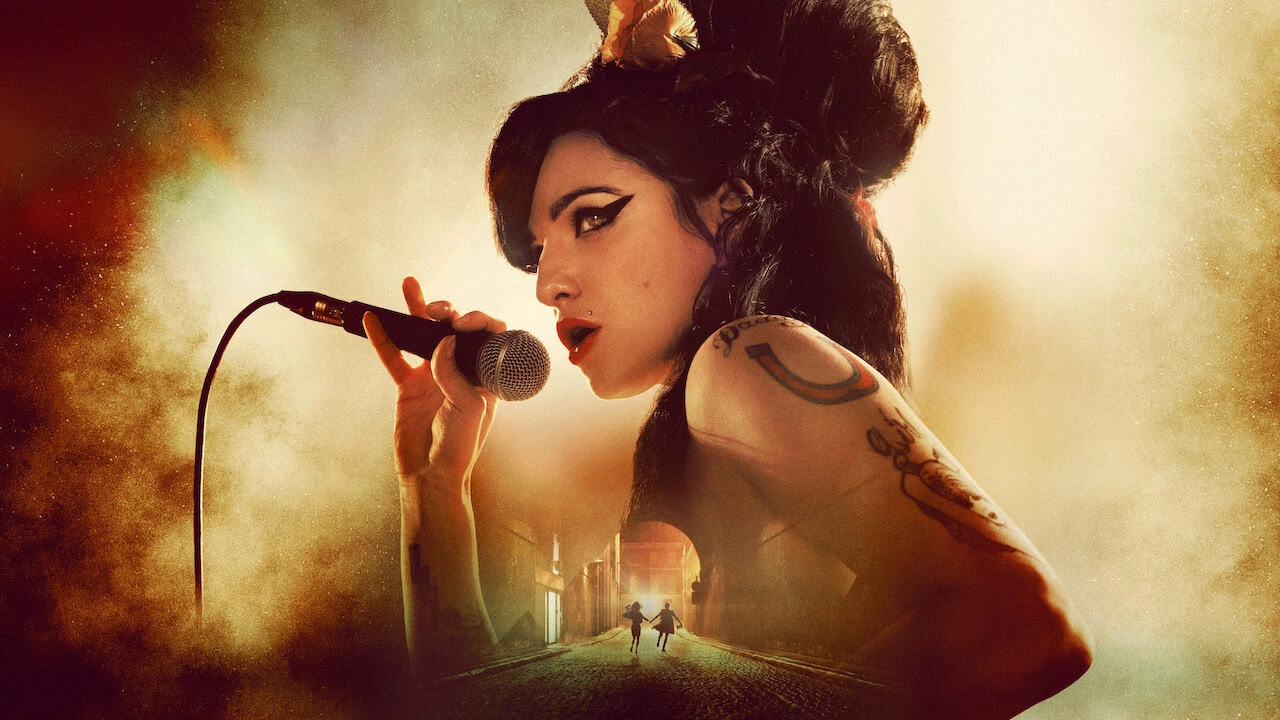The biopic Back to Black, directed by Sam Taylor-Johnson, attempts to shed new light on Amy Winehouse’s life, offering a deeply empathetic portrayal of her rise to fame and tragic decline. Marisa Abela, taking on the challenging role of Winehouse, gives a nuanced performance, embodying the singer’s unique style and physical presence with surprising accuracy. However, despite the film’s noble intentions, its cautious approach to depicting the darker elements of Winehouse’s life has led to mixed reactions. With a focus on her romantic relationship with Blake Fielder-Civil, Back to Black presents Winehouse as a woman ensnared by both love and addiction, yet critics argue that this narrative may reduce her to a single aspect of her complex persona.
Marisa Abela’s portrayal of Amy Winehouse
One of the film’s strongest points is Abela’s dedicated portrayal of Winehouse. Known for her work on Industry, Abela steps into Winehouse’s shoes with conviction, capturing her powerful stage presence and the distinctive rasp of her voice. She reportedly did her own singing for the film, adding authenticity to recreations of some of Winehouse’s most iconic performances, including those at the Grammy Awards and Glastonbury. Her physical resemblance to Winehouse, enhanced by the signature beehive and winged eyeliner, adds to her credibility, allowing audiences to suspend disbelief as they follow the singer through her turbulent life. Nevertheless, as noted by some critics, Abela’s performance, while faithful, may lack the raw intensity that characterised Winehouse’s real-life presence on and off stage.
The film takes a softer approach to Winehouse’s personal struggles, focusing primarily on her doomed romance with Blake Fielder-Civil, played by Jack O’Connell. Fielder-Civil is portrayed as both a charismatic lover and a toxic influence, pulling Winehouse further into addiction. The relationship is portrayed with both warmth and caution, showing the ways in which their connection fuelled her heartbreak and struggles. Taylor-Johnson has stated that she chose to depict the story from Winehouse’s perspective, emphasising her vulnerability and longing for love over a more clinical portrayal of addiction. While this approach brings empathy and depth to their relationship, some critics feel it simplifies Winehouse’s complex life, reducing her tragic demise to the outcome of a single, dysfunctional relationship.
Fame
Despite being set against the backdrop of Winehouse’s fame, the film largely avoids delving into the public’s obsession with her personal life. The portrayal of her rise to fame, though punctuated by key performances and industry moments, seems secondary to the film’s narrative focus on her romantic entanglements. Instead of tracing her full career trajectory, Back to Black narrows in on the time she spent with Fielder-Civil, offering a selective portrait that captures her in moments of joy and heartbreak. This narrative choice has led to a critique that the film lacks a fuller examination of her musical legacy. For fans hoping for insight into her creative process and artistry, the film may feel somewhat lacking.

© Focus Features
The film’s portrayal of Winehouse’s family, particularly her father Mitch Winehouse, also draws attention. In Back to Black, Mitch, played by Eddie Marsan, is shown as a loving but flawed figure, involved in his daughter’s life but not fully understanding or supporting her. The decision to soften his character contrasts with the depiction in the 2015 documentary Amy, which painted Mitch in a more controversial light, highlighting his role in Winehouse’s turbulent life and his potential exploitation of her fame. This compassionate portrayal is consistent with the film’s overall tone, which seems intent on treating Winehouse and her inner circle with understanding rather than judgement. However, critics have suggested that this softening, though empathetic, sidesteps some of the more challenging aspects of Winehouse’s personal history and fails to interrogate the impact her family dynamics had on her mental health and wellbeing.
Authentic London
One aspect that fans of Winehouse may appreciate is the film’s sense of place. The filmmakers made a concerted effort to use authentic London locations to ground the story in Winehouse’s world, from Camden’s Good Mixer pub to the winding streets of Primrose Hill. These settings are central to the atmosphere of Back to Black, immersing viewers in the gritty, eclectic environment that shaped Winehouse’s personality and sound. For Londoners, these locations may bring a sense of nostalgia, creating a vivid backdrop for Winehouse’s story that feels true to her roots and her connection to the city.

© Landmark Media/Alamy
In terms of thematic exploration, Back to Black focuses on the impact of fame and media scrutiny, though it addresses these themes subtly. Rather than highlighting specific media controversies, Taylor-Johnson’s approach implies the ways in which fame exacerbated Winehouse’s personal struggles. The few scenes that depict the intrusion of paparazzi hint at the toll that fame took on Winehouse’s psyche, yet these moments are downplayed compared to other portrayals of celebrity struggles. The film avoids the sensationalism that often accompanies portrayals of celebrity lives, choosing instead to keep the focus on Winehouse’s internal world and her relationships. For some viewers, this restraint may be refreshing, but for others, it may seem overly cautious, as if the filmmakers were reluctant to tackle the full weight of Winehouse’s struggles with fame.
A limited but heartfelt tribute
While Back to Black has been praised for its sensitivity, it has also faced criticism for playing it too safe. The film’s decision to focus on romance and family over addiction and fame gives it a gentler tone, but it may also feel incomplete, especially for audiences familiar with Winehouse’s work and legacy. Many hoped for a deeper, more unflinching look at the forces that shaped her life and led to her tragic death at age 27. Ultimately, Back to Black is a carefully crafted homage to Winehouse that celebrates her talent without fully engaging with the darkness that loomed over her. It paints an affectionate, respectful portrait but leaves out some of the raw edges that defined her life and art.
In summary, Back to Black is a respectful but somewhat limited biopic that offers a glimpse into Winehouse’s life through the lens of love and vulnerability. Marisa Abela’s performance and the evocative London settings anchor the film, while the decision to avoid more challenging themes reflects both the film’s strengths and weaknesses. For fans of Winehouse, the film may provide a tender, nostalgic tribute to the singer’s memory, even if it does not fully capture the complexity of her life. Back to Black is a well-made, well-acted film that honours Winehouse’s legacy but stops short of delivering the definitive portrait of her life. For those seeking a more unfiltered, in-depth look at Amy Winehouse’s life and struggles, the 2015 documentary AMY remains a more compelling and comprehensive choice.
Releasedate: April 12, 2024 (UK) | Production company: Studiocanal, Monumental Pictures | Cast: Marisa Abela as Amy Winehouse, Eddie Marsan as Mitch Winehouse, Lesley Manville as Cynthia Winehouse, Jack O’Connell as Blake Fielder-Civil

